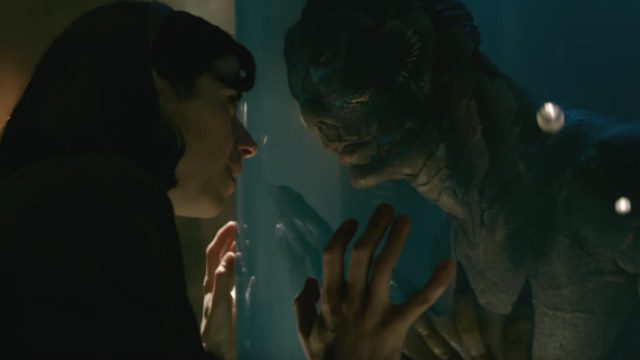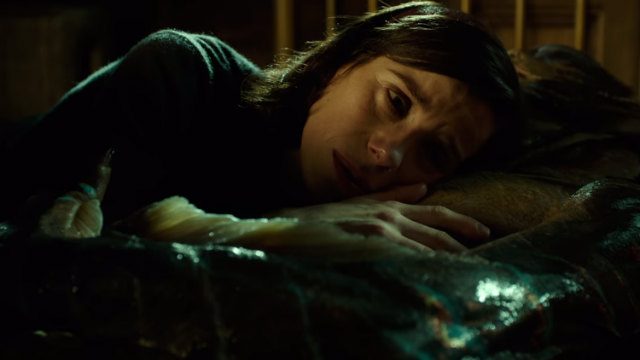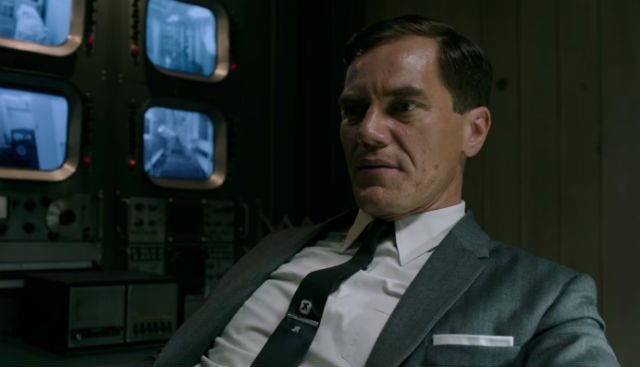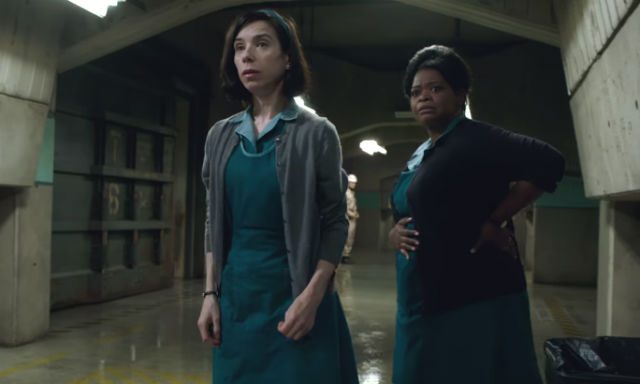SUMMARY
This is AI generated summarization, which may have errors. For context, always refer to the full article.

MANILA, Philippines – It is hardly surprising for Guillermo del Toro to end up creating a passionate romance between a girl and a monster.
The Mexican filmmaker has always carved a certain shameless seductiveness out of the grotesque. One only needs to look at the exaggerated curves and heft of the otherworldly heroes of Hellboy (2004), or the provocative but enticing eeriness of the supernatural beings of Pan’s Labyrinth (2006), or the alluring elegance of the gothic posturing of Crimson Peak (2015) to get the full grasp of his infectious and almost sensual affinity for all things that are disquietingly a notch beyond the realms of reality.
Love is love is love
In The Shape of Water, Del Toro finally comes clean.
He pushes the boundaries of his bizarre attraction with humanity’s near fetishistic fascination with the odd and peculiar, and molds a story that convinces with astounding conviction that the seemingly absurd love between Elisa (Sally Hawkins), a mute janitress and a mysterious creature (Doug Jones) that looks like a cross between a frog and a track athlete can represent the same love that we all aspire for.

Set in Baltimore in a time when the country is struggling with intolerance of anything foreign, different, and deviant, a time that echoes the one we are currently living in, the film grounds its unique romance under the mantle of acceptance.
Del Toro and co-writer Vanessa Taylor populate their tale with endearing protagonists who broadly represent the diversity that is alarming to those blinded by dogmatic hate but is defining of humanity’s limitless capacity to love. The villain comes in the form of Strickland (Michael Shannon), an authority figure who is characterized by his curious willingness to mouth biblical stories to justify his violent existence and is all too ready to treat the rest of his immediate world as tools in his singular mission to be the perfectly nationalistic American.
The film feels like a modern fable, with its characters almost bereft of grey areas, and its themes laid out without a hint of subtlety and laced with glorious lyricism. In a way, in a world where expressions of hate are uncompromisingly loud, Del Toro’s ode to the uniting power of love should also be as uncompromisingly clear, vibrant and relentlessly affecting.

Shadows, secrets and duplicity
The Shape of Water is a gorgeous film.
Its design is marvelous, alluding to an era of shadows, secrets and duplicity with mature understanding of the profound beauty of the cultural artifacts that express the dissent against the pervading atmosphere of division. The film is littered with cues, from the delightful shows and movies that inspire Elisa and her next door neighbor Giles (Richard Jenkins) to burst into gleeful laughter or mirthful dance.
What is fascinating is how Del Toro refuses to completely overshadow the darkness with optimism. There are always hints of cruelty and prejudice, reminders that the fairy tale doesn’t fall far from our grim reality.

The soul to the film’s luscious spectacle is Hawkins. Her performance is sublime. With barely a word spoken, she was able to evoke a universe of emotions. Similarly, by means of precise gestures and movements, Jones, despite being hidden underneath tons of make-up and special effects, persuades that there is indeed devotion beneath the gills and scales of his creature.
To love and be loved
Simply put, The Shape of Water is a film that the world needs right now.
In a time when walls are being built to divide people for the slightest instance of difference, the film reminds us that we are all bound together by the most human desire to love and be loved. – Rappler.com

Francis Joseph Cruz litigates for a living and writes about cinema for fun. The first Filipino movie he saw in the theaters was Carlo J. Caparas’ Tirad Pass. Since then, he’s been on a mission to find better memories with Philippine cinema.
Add a comment
How does this make you feel?
There are no comments yet. Add your comment to start the conversation.